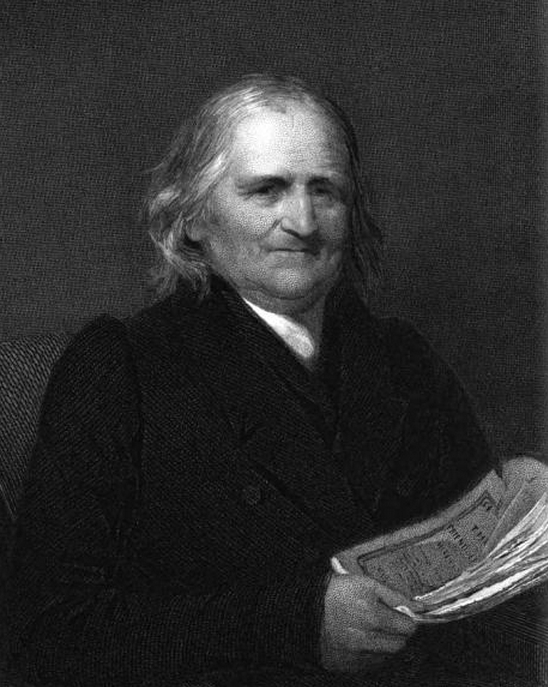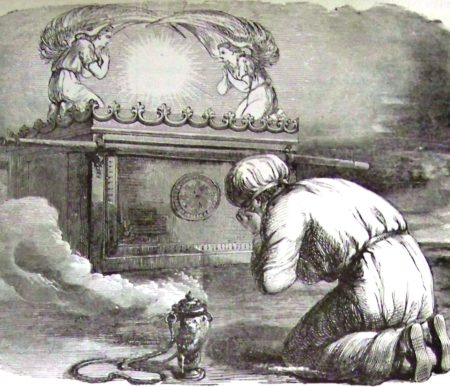Podcast: Play in new window | Download
Subscribe: Spotify | Email | RSS
 Early American Noah Worcester (1758-1837) was, at various times in his life, a congregationalist minister, missionary, theological writer, journal editor, shoe maker, schoolmaster, state representative, justice of the peace, soldier in the revolutionary war, and pacifist.
Early American Noah Worcester (1758-1837) was, at various times in his life, a congregationalist minister, missionary, theological writer, journal editor, shoe maker, schoolmaster, state representative, justice of the peace, soldier in the revolutionary war, and pacifist.
He’s most remembered for his books Bible News (5th ed. 1854) (pdf), A Solemn Review of the Custom of War (11th edition, 1833), and The Atoning Sacrifice, a Display of Love, not of Wrath (2nd ed. 1830). In this and the next episode, we’ll hear portions of this last book, a product of decades of wrestling with the meaning of Jesus’s death on the cross, according to the New Testament.
Worcester rejects as without scriptural foundation and against reason the interpretation of Jesus’s death as God’s exercising his wrath upon Jesus, giving him the full punishment due us, which as holy God had to do in order to forgive any of us.
In the latter half of this episode, Worcester focuses on Paul’s comments in Romans 3, which he thinks comes as close to anything in the New Testament as sounding like a penal substitution theory of atonement:
But now, apart from law, the righteousness of God has been disclosed, and is attested by the law and the prophets, the righteousness of God through faith in Jesus Christ for all who believe. For there is no distinction, since all have sinned and fall short of the glory of God; they are now justified by his grace as a gift, through the redemption that is in Christ Jesus, whom God put forward as a sacrifice of atonement [note: Or a place of atonement] by his blood, effective through faith. He did this to show his righteousness, because in his divine forbearance he had passed over the sins previously committed; it was to prove at the present time that he himself is righteous and that he justifies the one who has faith in Jesus. (Romans 3:21-26, NRSV)
Next week, we’ll hear more of his thoughts from this book, and more on why in his view Jesus’s famous death should be seen as a display of love and not as a display of divine wrath.
[spp-tweet tweet=”Did God punish Jesus on the cross with the punishment due us all?”]
 Links for this episode:
Links for this episode:
- Noah Worcester
- The Atoning Sacrifice, a Display of Love, not of Wrath (2nd ed. 1830)
- Matthew 6:9-13; Luke 15:11-32; 1 John 3:1; Psalm 51:16-17; Romans 12:1, Hebrews 13:15; Mark 12:33; Philippians 2:17; 2 Timothy 4:6; Ephesians 5:1-2; 1 Samuel 15:22-23; Proverbs 21:3; Isaiah 1:13-20; Genesis 2:17; Genesis 3:3; John 19:4; Matthew 20:28; 1 Timothy 2:6; Isaiah 43:3; Proverbs 21:18; Romans 3:21-26; 1 John 1:9; Exodus 25:21-22; 2 Corinthians 1:3; Hebrews 9:26; Hebrews 1:3.
- podcast 91 – Dr. Joshua Thurow on theories of the atonement
- podcast 92 – Dr. Joshua Thurow on objections to atonement theories
- This week’s thinking music is “Devil Man” by Drake Stafford.
